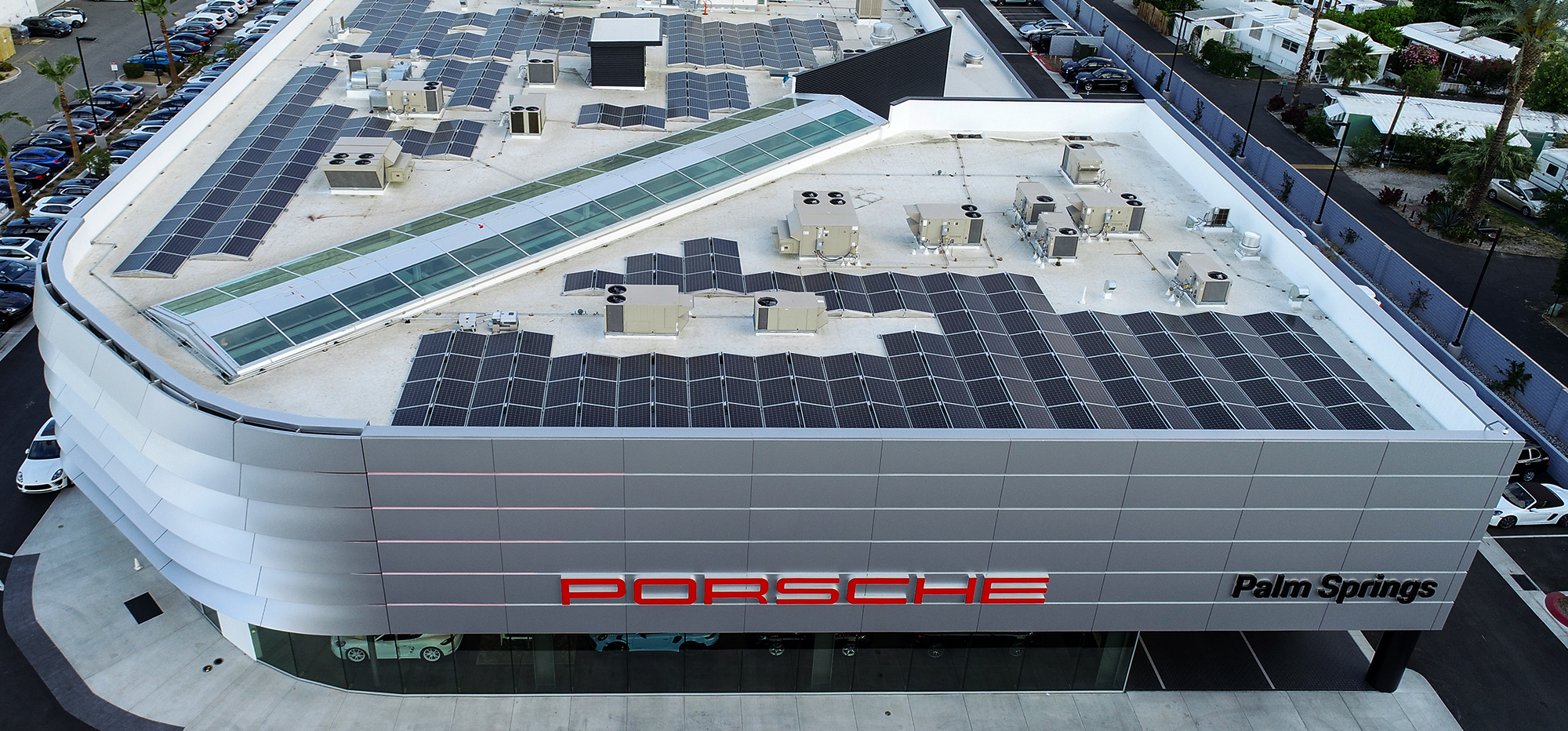Our team of Coachella Valley solar installers is proud to take part in SunPower’s achievement as the solar panel company with the most commercial projects!
As a SunPower Commercial Dealer, Renova Energy’s commercial solar projects were among those that helped make SunPower the #1 Commercial Solar Provider in the United States for the third year in a row.
With information and data collected from Wood Mackenzie’s U.S. commercial solar leaderboard report, SunPower has once again—and for the third consecutive year—been recognized as the highest-ranking solar provider for installations and module technology.
The ranking is calculated using data from a variety of sources, including the following:
- Rebate program
- Utilities
- Installers
- Equipment suppliers
- U.S. Solar Market Insight reports from SEIA
Renova Energy’s Recent Commercial Projects
Here are some recent projects that Renova has completed, many incorporating SunPower’s patented ballasted Helix Design System—a system that is installed without penetrations into the roof.
Antique Galleries: This project includes 120 SunPower 327 Watt modules. Installed in June of 2016 in the city of Palm Springs, CA, with a total capacity of 39kW. Owners have credited it with saving their business, as it practically eliminated their monthly $15k energy cost.
Boys & Girls Club: This project includes 400 SunPower 327-Watt modules. Installed in July 2016 in the city of La Quinta, CA, with a total capacity of 130kW. This project allowed them to save the money they would have spent on electricity and use it for their programs and services.
SunLine: This project includes 480 SunPower 327-Watt modules. Installed in April 2016 in the city of Thousand Palms, CA, with a total capacity of 290kW. SunLine is a leader in using clean alternative fuels for their vehicles, and now those efforts, and their headquarters building, are being powered by solar.
Desert Retina: This project includes 128 SunPower 360 Watt modules. Installed in June of 2018 in the city of Palm Desert, CA, with a total capacity of 46.8kW. This project is saving this small business big money.
Porsche Palm Springs: This project includes 160 SunPower 360 Watt modules. Installed in May of 2019 in the city of Palm Springs, CA, with a total capacity of 57.6kW. A prototype for new Porsche dealerships across the world, Destination Porsche Palm Springs is on track to become LEED-certified, and their solar is a big part of their environmental commitment. This installation won the SunPower National Intelegant Award in 2019 for an exceptionally well-designed and installed commercial solar project.
Lexus: This project includes 702 SunPower 360-Watt modules. Installation is to be completed in June 2020 in the city of Cathedral City, CA, with a total capacity of 252.72kW. Renova showed them how to combine substantial savings with stewardship of the environment through the generation of clean, renewable energy.
Interested in learning more? Contact our Coachella Valley commercial solar installation company today and let our team be your guide to savings and a green future!

